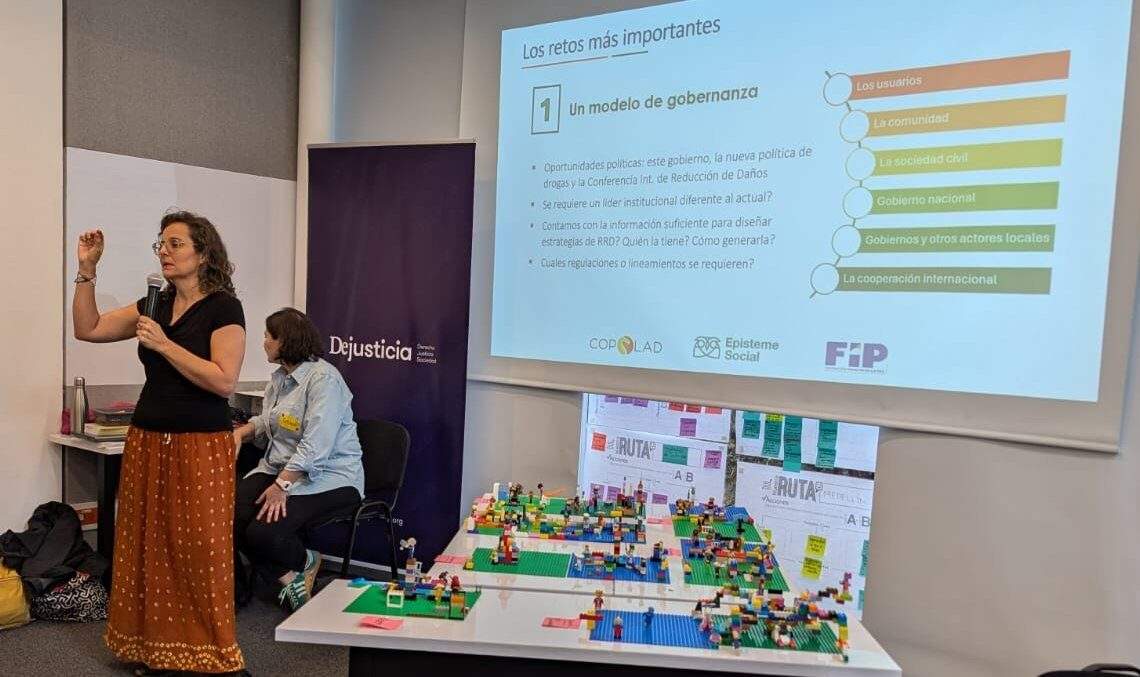Several countries in Latin America and the Caribbean are incorporating risk reduction and harm reduction into their drug policies. The health approach is taking hold in the region and the COPOLAD III programme provides technical support for its incorporation into country plans and legislation, as in the case of Colombia, where it is working with the Ministry of Justice and Law, the Ministry of Health and Social Protection and civil society to promote improvements in this area. The programme provides various technical inputs aimed at identifying and promoting an Action Plan to improve the scale and sustainability of harm and risk reduction in drug use in Colombia.
These were presented at a workshop organised by DEJUSTICIA, the civil society organisation responsible for the Human Rights and Drug Policy Guidelines promoted by the United Nations Development Programme (UNDP) and led by DEJUSTICIA in Colombia, in collaboration with the IFP, the Ministries of Health and Justice and COPOLAD III.
Diagnosis in five territories
COPOLAD III’s contribution, which was presented at the Working Table, consists of a diagnosis of the situation of risk and damage reduction actions in 5 territories, an identification of difficulties and opportunities to make the actions viable, scalable and sustainable, and public policy recommendations that feed into the action plan of the National Policy that is about to be launched.
As a result, it is expected that the country will have a short and medium-term roadmap to further promote and improve the scope of risk and damage reduction actions that are being developed at national and local levels.
The technical assistance provided by COPOLAD III has involved the consultancy EPISTEME Social, from Spain, as well as Spanish civil society organisations, such as Metzineres. The expert Ana María Rueda, from Colombia, researcher at the Fundación Ideas para la Paz, an organisation involved in drugs and security in Colombia, and the coordination of Inés Elvira Mejía, COPOLAD III’s expert in demand reduction, also collaborated.
The Working Group, which took place from 23-24 June, was attended by the General Directorate of Drugs of the Ministry of Justice and Law, the Ministry of Health, as well as administrations and various civil society organisations from seven territories: Bogotá, Cali and Santander de Quilichao, Medellín, Pereira and its surrounding areas of Pereira and Dosquebradas, Armenia and Cúcuta.
In the process of accompanying Colombia in the area of risk and damage reduction, a study visit was also made to Barcelona in May, with representatives from the Ministry of Justice and Law and the city of Cali.
See news: Mexico and Colombia learn about the Catalan experience in harm reduction for drug use – COPOLAD






